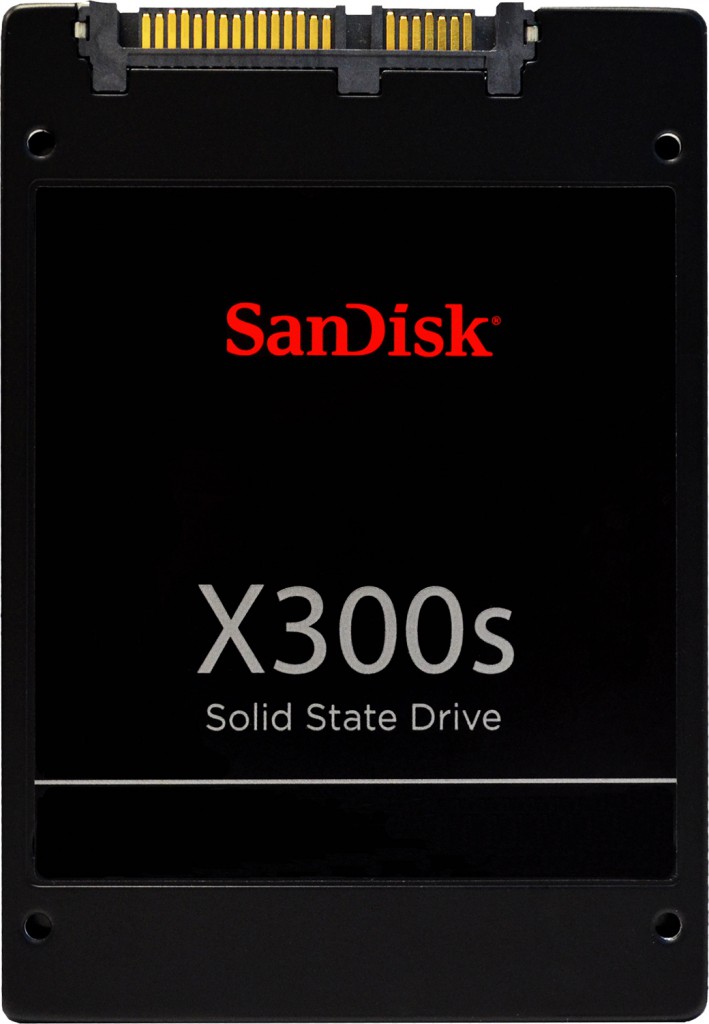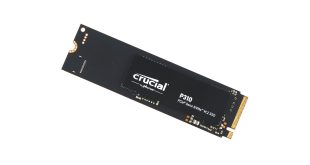SanDisk Corp. on Tuesday announced its first family of solid-state drives that support all the certified encryption technologies. The new drives are designed for corporate laptops, so expect to see them in the upcoming Lenovo ThinkPads and HP EliteBooks. The drives will be made in 2.5”/7mm and M.2 versions.
The SanDisk X300s solid-state drives will be available in two form factors, 2.5” 7mm and M.2 2280 single-sided, with capacities of 64GB, 128GB, 256GB, 512GB, and 1TB. Capacities up to 512GB will be supported on the M.2 2280 single-sided design form factor, enabling thinner computing designs.
The manufacturer declares sequential read speed up to 520MB/s, sequential write speed up to 460MB/s. The drives can perform up to 96K/80K random read/write input/output operations per second (IOPS). SanDisk claims that the 128GB, 256GB, 512GB and 1TB SSDs are tested for over 80TB total amount of data written to be written throughout the lifespan, whereas the 64GB version is rate at 40TB.
SanDisk did not reveal what kind of NAND flash memory and controller powers the X300s solid-state drives, but it is likely that the SSDs use MLC NAND made using second-gen 19nm process technology by Toshiba and SanDisk.
The SanDisk X300s drives utilize an AES 256-bit FIPS 197 certified hardware crypto engine to enable full-disk encryption without the performance penalty experienced by the use of software-based encryption. The engine is compatible with TCG Opal 2.0 and Microsoft Encrypted Hard Drive specifications and is compliant with industry-standard security specifications including IEEE 1667. Additionally, it features advanced power management with DEVSLP low-power mode, enabling Microsoft InstantGo.
Data encryption is critical to guarding sensitive corporate IP and can help healthcare, financial services and education organisations remain in compliance with industry regulations.
“Businesses of all sizes want computers that are reliable, secure, built to last and are easy to support remotely,” said Kevin Conley, senior vice president and general manager, client storage solutions at SanDisk. “For the enterprises that deploy hundreds or even thousands of laptops, it’s essential that their IT departments be able to centrally and securely manage these devices. The X300s, designed with SanDisk’s world-class flash, helps corporate IT leaders not only deliver the heightened performance and lower TCO that flash is known for, but also addresses data protection and security needs, without business disruption.”
Discuss on our Facebook page, HERE.
KitGuru Says: Encryption of SSDs is a pretty hard thing since it should be done keeping in mind management of flash memory. SSDs supporting encryption with 256-bit key emerged on the market only recently.
 KitGuru KitGuru.net – Tech News | Hardware News | Hardware Reviews | IOS | Mobile | Gaming | Graphics Cards
KitGuru KitGuru.net – Tech News | Hardware News | Hardware Reviews | IOS | Mobile | Gaming | Graphics Cards



